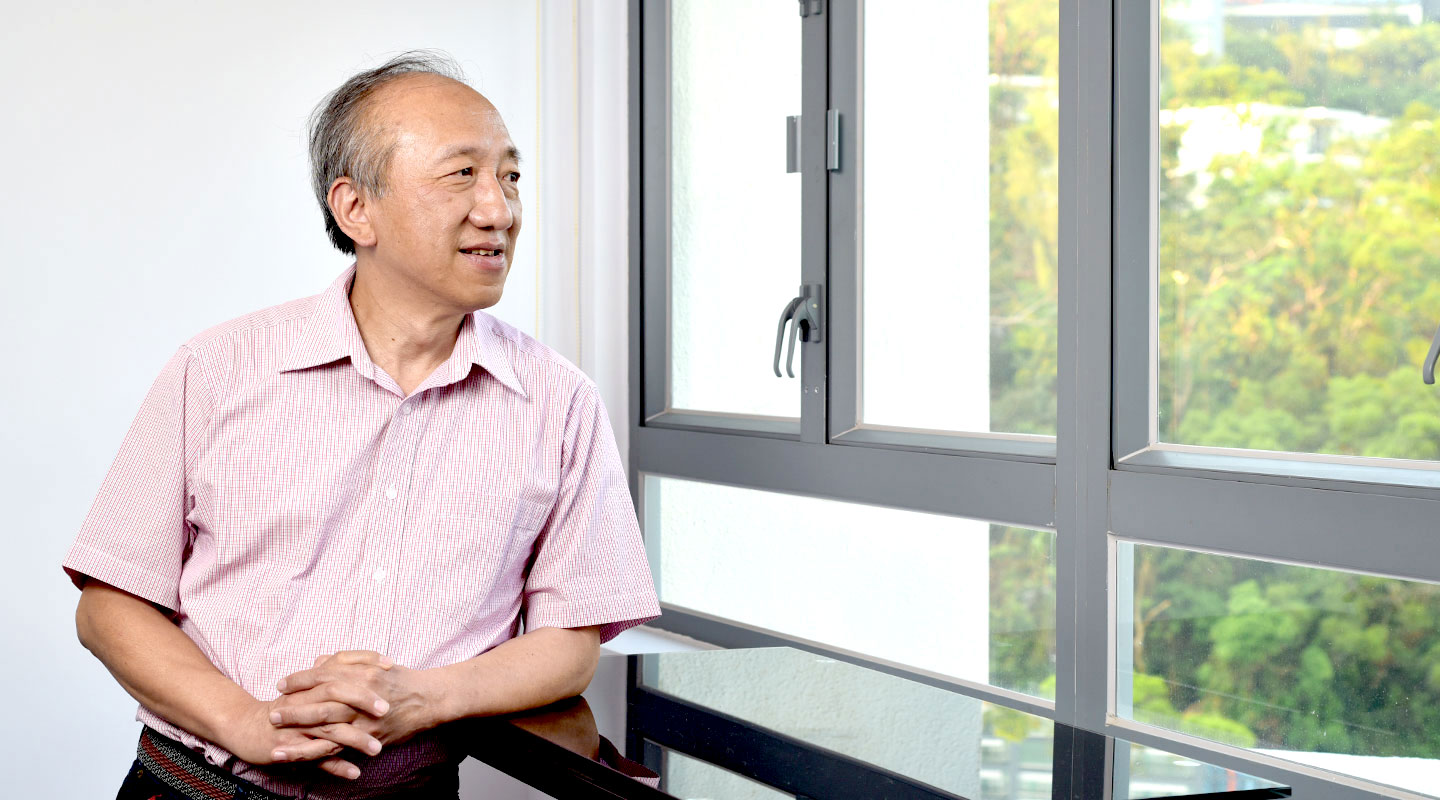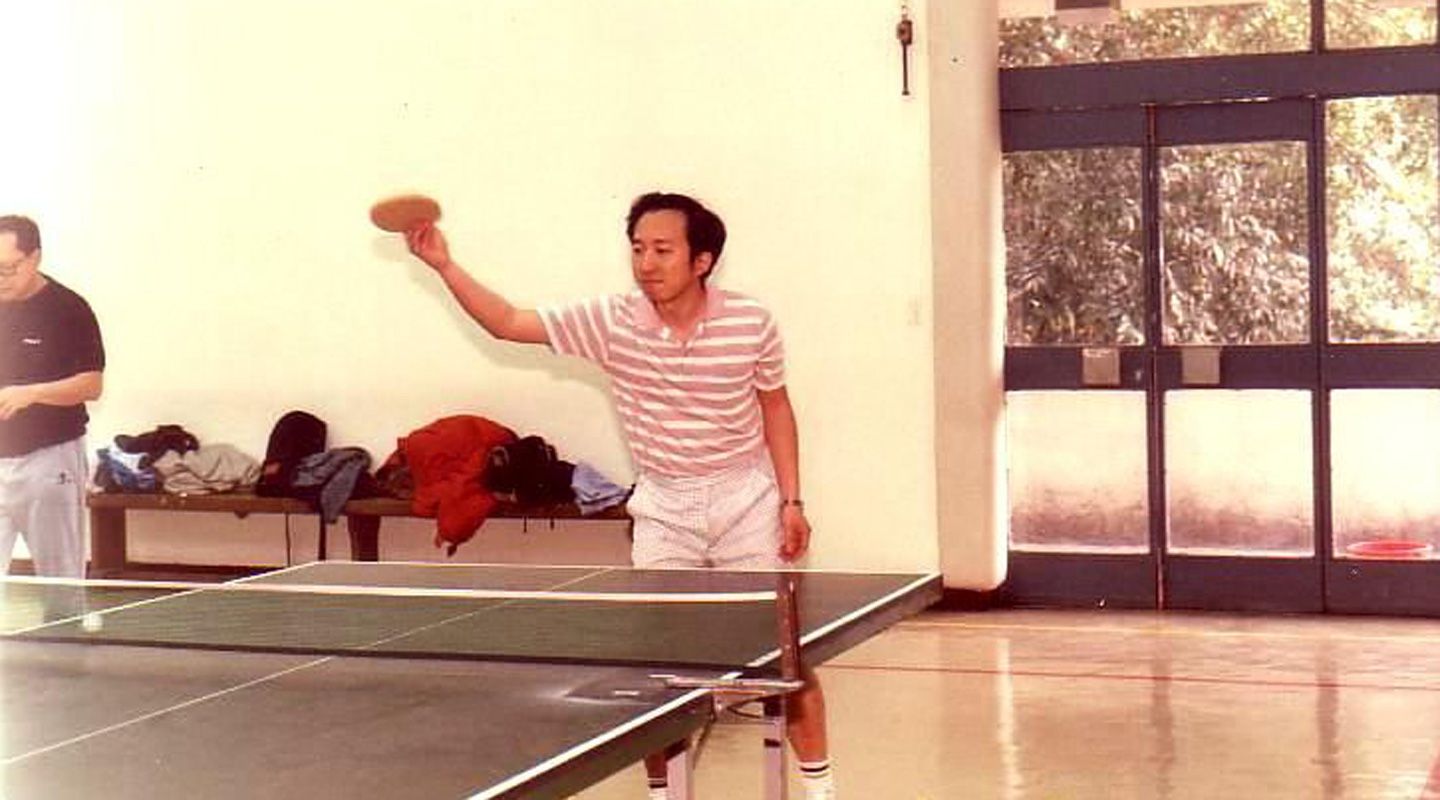Dear readers, With the launch of e-newsletter CUHK in Focus, CUHKUPDates has retired and this site will no longer be updated. To stay abreast of the University’s latest news, please go to https://focus.cuhk.edu.hk. Thank you.
Hau Kit-tai Seeks Truth through Data

Prof. Hau Kit-tai
- Choh-Ming Li Professor of Educational Psychology
- Director of EdDataX Research Centre
- Fellow of American Educational Research Association
How did you get into psychology?
Back in my undergraduate days at CUHK when I was a chemistry major, I came across a psychological test book in the library. It was intriguing to see how it could unveil your hidden personality traits simply by asking you to doodle, or draw a house, tree and person. I got acquainted with educational psychology while reading for the postgraduate diploma in education, and psychology became the field I specialized in for doctoral studies.
Your research invariably speaks through data. Why do you place so much emphasis on them?
W. Edwards Deming, a statistician and father of quality management, pronounced famously, ‘In God we trust; all others must bring data.’ Only data can reveal the crux of a problem and enable us to tackle it head on.
Can you give us an example?
Many people take the view that to relieve primary students’ homework stress, we have to identify schools with the most assignments. But data show that the variance in the amount of homework among schools is only 1–5%, while more than 90% of the variance comes from students within a school—the same work on the plate is finished by some in 15 minutes, and some in two to three hours. Hence the solution to the problem lies not in singling out schools with much work to do, but identifying students who procrastinate and teaching them to focus and manage their time well.
Any interesting discovery from your studies of motivation?
Suppose there are two students who score 80 in a test, with one entering a high-performing school and another a low-performing one. Guess who will become more confident in himself? Data tell us that on average, getting into an elite school takes a toll on self-confidence, as students realize there are far more brilliant souls in the class. Even for the Chinese who obsess about ‘face-saving’, the glory coming with elite schools fails to offset the negativity brought by social comparison.
What do you have to say about positive psychology?
Staying positive does not mean to wait for good things to happen to oneself. Rather, one has to proactively embrace trials and failures, to look on the bright side while working hard to achieve goals. Confidence should go in tandem with ability.
What is your take on STEM education which is the hype of these days?
Many people equate STEM education with encouraging creativity. But creativity is not born of daydreaming, or of coming up with 100 uses of a chalk. It has to be based on discipline and perseverance, just like scientists have to toil away in laboratory day and night in the hunt for a discovery. Pipe dreams won’t get you anywhere.

What makes you stay at CUHK for three decades?
I enjoy learning new things. There is no greater joy than using data to debunk myths and discover new perspectives on old problems.
Name the accomplishment you are most proud of in your career.
If God asks me what I have done in this life when I go to heaven, I will say I have promoted eating breakfast among schoolchildren. Our investigation affirms the medical research that shows breakfast has a huge impact on academic results.
Besides teaching and research, you head quite a few education centres and serve as member in government committees. How do you juggle multiple roles?
Day-offs have been banished from my schedule since high school. I never knew which TV programmes are showing, or who the most popular singer is. But I never regard work as a punishment, as long as my expertise is of use to this world.
How do you educate your two boys?
I teach by my own example. I impose stringent standards on myself, and my sons follow suit. All three of us work till two or three in the morning before going to bed, though it may not be a healthy habit to have.
Christine N.
This article was originally published in No. 526, Newsletter in Nov 2018.